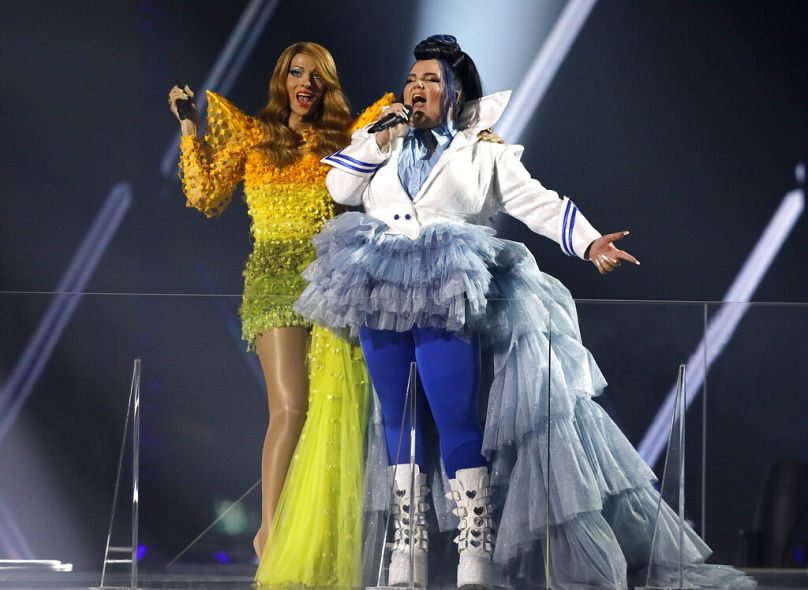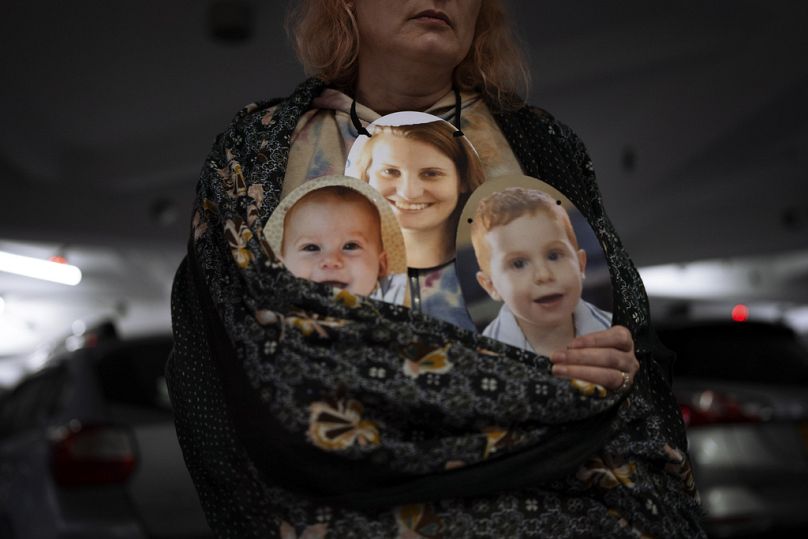If it does not allow Eden Golan to perform her song "October Rain" as written, the EBU would overlook Israel's lived experience, indirectly dismissing the suffering of the Jewish state, Sacha Roytman Dratwa writes.
Each year, I eagerly await the Eurovision Song Contest, a magnificent event where singers from countries across Europe and beyond share their stories.
This exceptional gathering provides a cultural stage for participating nations to offer glimpses into their cultures, histories, and ways of life. It is a platform for learning about, celebrating, and respecting different peoples.
It is a celebration of music and lifestyle. While the flags of individual nations are held aloft, the spirit is one of fraternity and camaraderie.
Israel has always been a fascinating participant, presenting music and artists that reflect its diversity.
Dana International, the first transgender winner of the Eurovision in 1998, symbolized Israel's progressive society.
The iconic "Hallelujah" song in 1979 embodied the hopeful and vibrant spirit of the Israeli people and more recently, in 2018, Netta Barzilai’s "Toy" heralded the emergence of a creative new generation of Israeli music.
They were all embraced by our European brothers and sisters. Politics and ideology are set aside in a celebration of Europe.
Israel's song is neither political nor aggressive
As a Belgian-Israeli, I am doubly invested in the contest, cheering for both countries I hold dear.
However, following the barbaric massacre perpetrated by Hamas on 7 October, Israel’s cultural spirit has been affected.
With 130 citizens still held captive in Gaza, families grieving, soldiers sacrificing their lives in battles with Hamas, and 200,000 people displaced due to the conflict on both the southern and northern borders, our national mood is not one of celebration.
Our country is in mourning, feeling isolated and threatened. This sorrow is our present truth.
Unfortunately, the European Broadcasting Union (EBU) is considering disqualifying Israel due to what it describes as “political” lyrics.
In recent years, the EBU has disqualified very few songs for being political, with Georgia being disqualified in 2009 for writing a song about Vladimir Putin, and Belarus in 2021 which mocked protests against President Alexander Lukashenko.
Israel’s entry, to be performed by Eden Golan, contains no such political or personal attacks.
“Everything is black and white. Who is the fool. Who told you boys don’t cry. Hours and hours and flowers. Life is not a game for the cowards...While time goes by. Every day I’m losing my mind. Holding on,” are the lyrics.
No mention of politics or even overt mentions of the war Israel is waging against Hamas
It is little more than a ponderance on overcoming challenges and encapsulates the mood of many in the face of the single greatest loss of Jewish life since the end of the Holocaust..
Anguish and suffering should not be silenced
If it does not allow Golan to perform her song "October Rain" as written, the EBU would overlook Israel's lived experience, indirectly dismissing the suffering of the Jewish state.
We cannot conceal our anguish simply because it does not fit the Eurovision's narrative of joy.
Israel's story cannot be silenced, just as we would not silence the stories of others.
If Israel is barred from sharing "October Rain," other countries must reconsider their participation in this year’s contest. They should not endorse a culture of cancellation or denial.
True, nations sometimes face harsh realities that are far from festive, but these too deserve a voice on international stages like Eurovision.
Sacha Roytman is CEO of the Combat Antisemitism Movement (CAM).
At Euronews, we believe all views matter. Contact us at view@euronews.com to send pitches or submissions and be part of the conversation.













